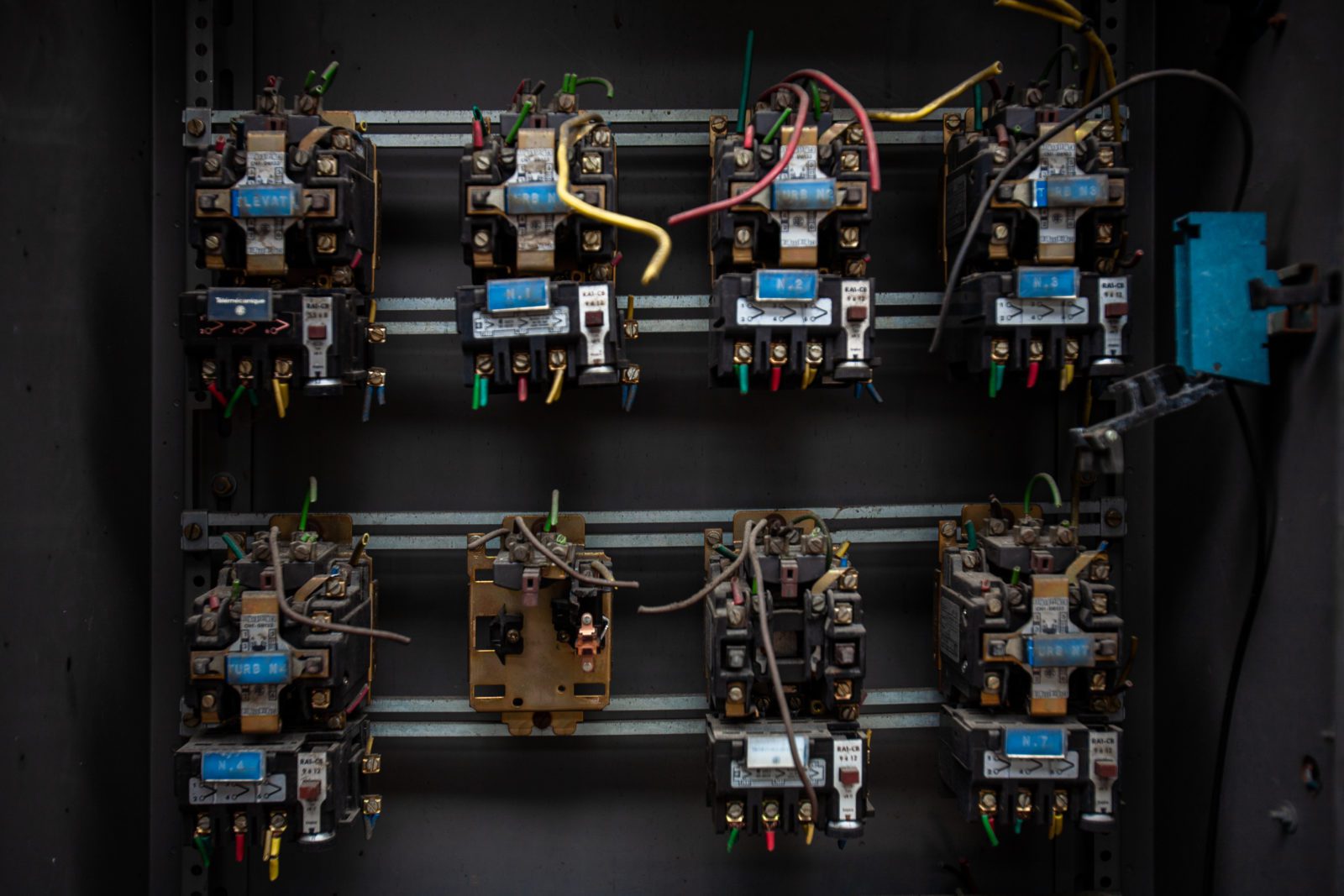Table of Contents
ToggleWhen it comes to replacing or installing a circuit breaker, picking the right type is super important to keep your equipment safe. With so many options out there, it can be tough to figure out the best choice.
We want to help you understand how to choose the perfect circuit breaker for your breaker panel. If we know the manufacturer, catalog number, voltage, amperage, and the number of poles, we can avoid a lot of hassle by being prepared.
We’ll walk you through the different types of circuit breakers, highlight the key factors to consider when making your decision, and provide some handy tips to make the whole process a breeze. By the end of this article, you’ll have all the info you need to make the smartest choice.
Types of Circuit Breakers
Circuit breakers are essential safety devices that protect your electrical system from damage caused by overloads, short circuits, and ground faults. Choosing the right type of circuit breaker is crucial for ensuring the safety and efficiency of your electrical panel.

Common Types of Circuit Breakers :
- Traditional (Magnetic) Breakers: These breakers are designed to protect against overloads and short circuits. They are typically used in older electrical systems.
- Arc Fault Circuit Interrupters (AFCIs): AFCIs are designed to detect and interrupt arcing faults, which can be caused by faulty wiring or loose connections. They are particularly important in residential settings to help prevent electrical fires.
- Ground Fault Circuit Interrupters (GFCIs): GFCIs are designed to protect against electrical shocks caused by ground faults. They are commonly used in areas with moisture, such as bathrooms, kitchens, and outdoor outlets.
- Combination AFCI/GFCI Breakers: These breakers combine the features of AFCIs and GFCIs, protecting against both arcing faults and ground faults in a single unit.
Choosing the Right Circuit Breaker :
- Local Building Codes: Consult local building codes to determine the specific types of circuit breakers required for your electrical system.
- Circuit Analysis: Create a list of your existing circuits and analyze their requirements to determine the appropriate breaker type for each.
- Amperage and Thermal Ratings: Match the breaker’s amperage and thermal ratings to the specific needs of each circuit.
- Supervision Method Compatibility: If you’re using supervision methods like Arc-Fault Detection Devices (AFDD) or Ground Fault Detection Devices (GFDD), ensure they are compatible with your panel brand.
Safety Considerations: Safety Considerations: Always follow basic safety principles when working with electrical panels, such as
- Using appropriate safety equipment
- Turning off the main breaker
By understanding the different types of circuit breakers and following these guidelines, you can ensure the safety and reliability of your electrical system.
Factors for Selection
When selecting a circuit breaker, it is important to choose the right one for your panel. Here are some factors to consider:

- Check that the amperage of the circuit breaker is rated for the wattage of the building to prevent overloads and ensure safe operation. Other power requirements, such as surge protection and fault current levels, should also be taken into account.
- Research the different types of circuit breakers available on the market, each with its own features and level of protection, and choose one that will meet your needs while prioritizing safety and reliability. Look for a UL rating to ensure that the breaker has been tested for safety and meets industry standards.
- Check compatibility between your panel box and the necessary adapter before committing to a purchase, as not all models are compatible with each other. Additionally, consider environmental conditions where the equipment will be used, as certain models may be better suited than others depending on factors such as temperature extremes or air pressure changes.
- Check the amperage that your application needs with the amperage listed on the circuit breaker. For example, a 100 amp breaker wouldn’t work with a 30 amp application.
- Make sure to take note of if you need a two or three-pole breaker, and if the breaker is a clip-on, plug-in, or bolt-in.
Understand Your Options When Selecting a Circuit Breaker
When choosing a circuit breaker, it’s essential to consider several factors to ensure optimal performance and safety:
Ampere Rating (AR)
- Calculate Load: Determine the total current load of your system.
- Match Rating: Select a breaker with an AR that matches or slightly exceeds your calculated load.
Short-Circuit Breaking Capacity (SCBC)
- Safety Margin: Ensure the breaker’s SCBC is sufficient to handle potential short-circuit currents in your system.
- Consult Standards: Refer to local electrical codes and standards for specific requirements.
Overcurrent Protection Type
- GFCI: Use Ground Fault Circuit Interrupters in areas with moisture or potential for electrical shock.
- AFCI: Employ Arc Fault Circuit Interrupters to protect against arcing faults, common in residential settings.
- Combination: Consider combination GFCI/AFCI breakers for added safety in certain applications.
Configuration and Safety Standards
- Compatibility: Ensure the breaker is compatible with your electrical panel and system configuration.
- Code Compliance: Adhere to local electrical codes and safety standards.
Breaker Size and Panel Compatibility
- Physical Fit: Verify that the breaker’s physical dimensions match the slots in your panel.
- Maximum Amperage: Ensure the breaker’s maximum amperage rating does not exceed the panel’s capacity.
Interrupt Ratings
- Coordination: Coordinate the interrupt ratings of the breaker with any other protective devices in your system to prevent cascading failures.
Additional Features
Shunt Trip Option: Explore shunt trip breakers for remote switching or emergency shutoff.
Surge Protection: Consider surge protection breakers to shield your equipment from voltage spikes.
Ground Fault Protection: Use GFCI breakers in areas prone to ground faults.
Determine the Correct Amp Rating for Your Panel’s Circuit Breaker
Understanding the Importance of Proper Circuit Breaker Selection
Choosing the right circuit breaker for your electrical panel is crucial for ensuring safety, efficiency, and preventing costly repairs due to overloading. A mismatched circuit breaker can lead to electrical fires, equipment damage, or even personal injury.
Factors to Consider When Selecting a Circuit Breaker
- Wattage Load of Your Electrical Panel:
- Calculate Total Wattage: Add up the wattage of all devices connected to the panel.
- Determine Amperage: Use the formula: Amps = Watts / Volts.
- Consider Future Needs: Account for potential increases in wattage as you add new appliances or devices.
- Circuit Breaker Rating:
- Amperage Capacity: Choose a circuit breaker with an amperage rating that matches or slightly exceeds the calculated amperage.
- Voltage Level: Ensure the circuit breaker’s voltage rating is compatible with your electrical system.
- Safety Features: Consider GFCI (Ground Fault Circuit Interrupter) and AFCI (Arc Fault Circuit Interrupter) for specific applications, especially in areas with moisture or potential for electrical arcing.
- Accessibility:
- Easy Reset: Choose a circuit breaker that is easily accessible for resetting.
- Labeling: Consider labeling circuit breakers for easy identification.
Additional Tips:
- Consult an Electrician: If you’re unsure about any aspect of circuit breaker selection, consult a qualified electrician.
- Check Local Codes: Ensure your circuit breaker selection complies with local electrical codes and regulations.
- Regular Inspections: Have your electrical system inspected periodically to identify potential issues and ensure the circuit breakers are functioning correctly.
Example Scenario:
Suppose you have a panel with a total calculated wattage of 2,400 watts. Assuming a standard voltage of 120 volts, you would need a circuit breaker with a minimum amperage rating of 20 amps (2400 watts / 120 volts = 20 amps).
By following these guidelines and considering the factors mentioned above, you can confidently select the appropriate circuit breaker for your electrical panel, ensuring its safe and efficient operation.
Bottom Line
Choosing the right circuit breaker ensures the safety of both you and your equipment. It’s important to understand the various types of breakers available, so take into account features such as amperage rating, voltage level, surge protection, and safety features when selecting a breaker for your panel.
You should also be sure that the circuit breaker you choose is the right size and shape for your panel, and that the connections match.
Additionally, make sure to research all relevant regulations before installation.
By following these steps and taking into account all the factors mentioned in this article, you can ensure that you make an informed decision when selecting a circuit breaker.
Take a look at the different types of circuit breakers we offer to fit your needs.
If you want to learn more about selecting the right circuit breaker, contact us or call us at
(205) 812-5402. We’ll be happy to help! And if you already know which circuit breaker you need, we can help with that, too.